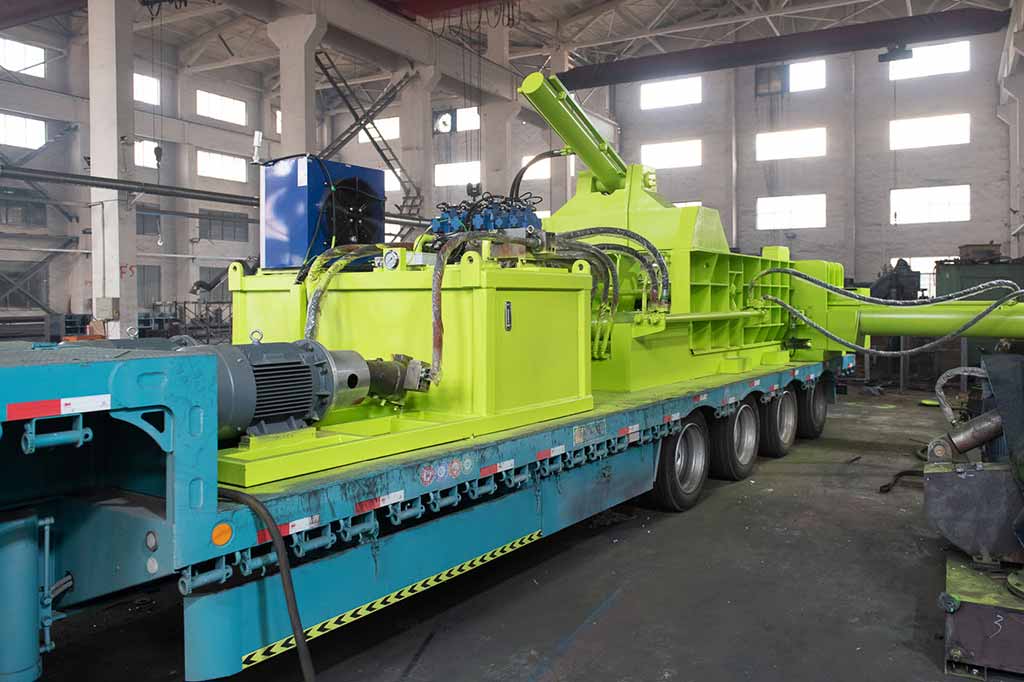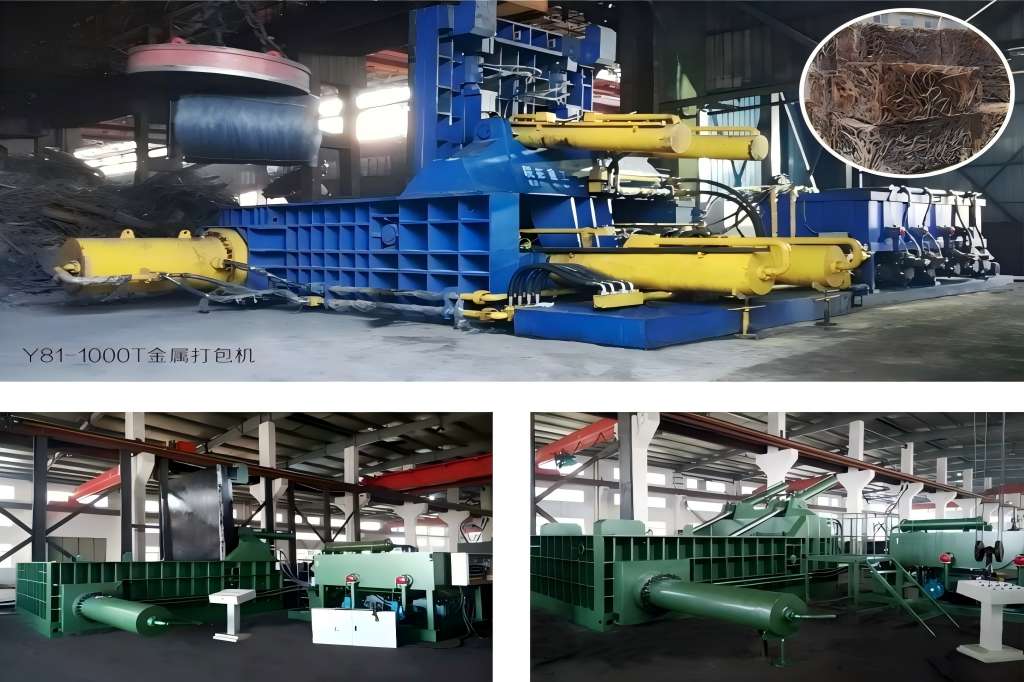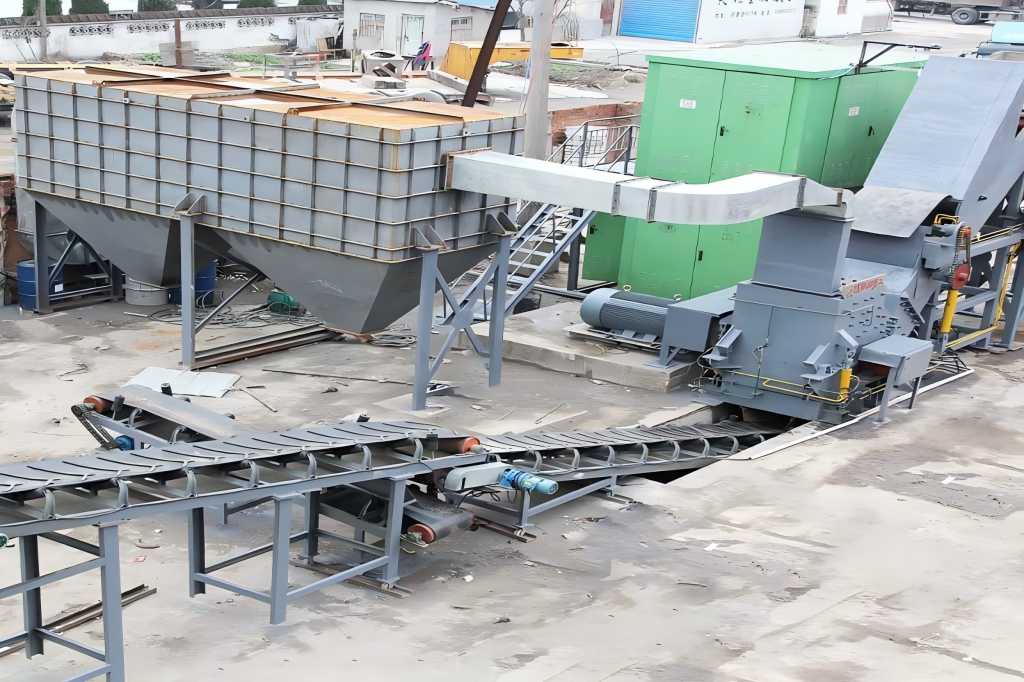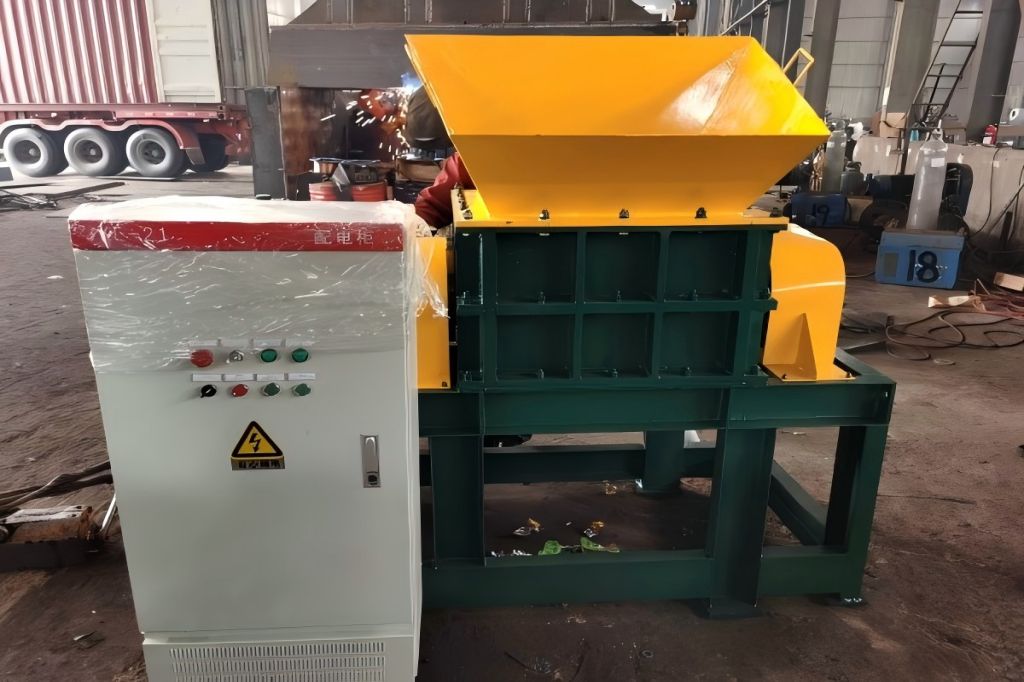Industries are quickly implementing technology that lessens their impact on the environment as the globe embraces sustainable practices. One such innovation is the mobile scrap metal baler, which plays a crucial role in advancing green manufacturing goals through efficient, on-site metal recycling.
The Growing Need for Sustainable Manufacturing
Manufacturing is a major source of carbon emissions and waste worldwide. As environmental regulations tighten and corporate sustainability becomes a priority, companies are rethinking how they handle production waste—particularly scrap metals, which are both recyclable and economically valuable.
Traditional scrap handling involves collecting loose metal, transporting it to centralized recycling facilities, and then processing it—an inefficient system that increases carbon footprints. Mobile scrap metal balers are disrupting this model by enabling on-site processing, reducing transportation requirements, energy usage, and environmental burden.
What Is a Mobile Scrap Metal Baler?
A mobile scrap metal baler is a portable compaction machine designed to compress various metal scraps, like aluminum, copper, steel, and iron, into compact bales. Mounted on trailers or trucks, these machines offer mobility and flexibility, allowing businesses to take the baling process directly to the scrap source.
Unlike stationary balers that require a dedicated facility, mobile versions are equipped to handle processing in remote, temporary, or multi-location operations. Their hydraulic-powered compression systems make them powerful enough to handle dense metals, while their compact design ensures easy maneuverability.
Key Features and Functions
Modern mobile scrap metal balers are equipped with features that make them ideal for sustainable operations:
- Hydraulic compression system: Provides high pressure to compact large volumes of metal into dense bales.
- Diesel-electric hybrid engines: Lower pollution and fuel usage.
- Fully automated controls: Enable easy operation and reduce labor requirements.
- Remote and wireless access: Allows for remote monitoring and diagnostics.
- Reinforced chambers: Designed to handle high-impact, high-volume metal waste.
These features enable mobile balers to handle a wide variety of materials efficiently, safely, and with minimal manual intervention.
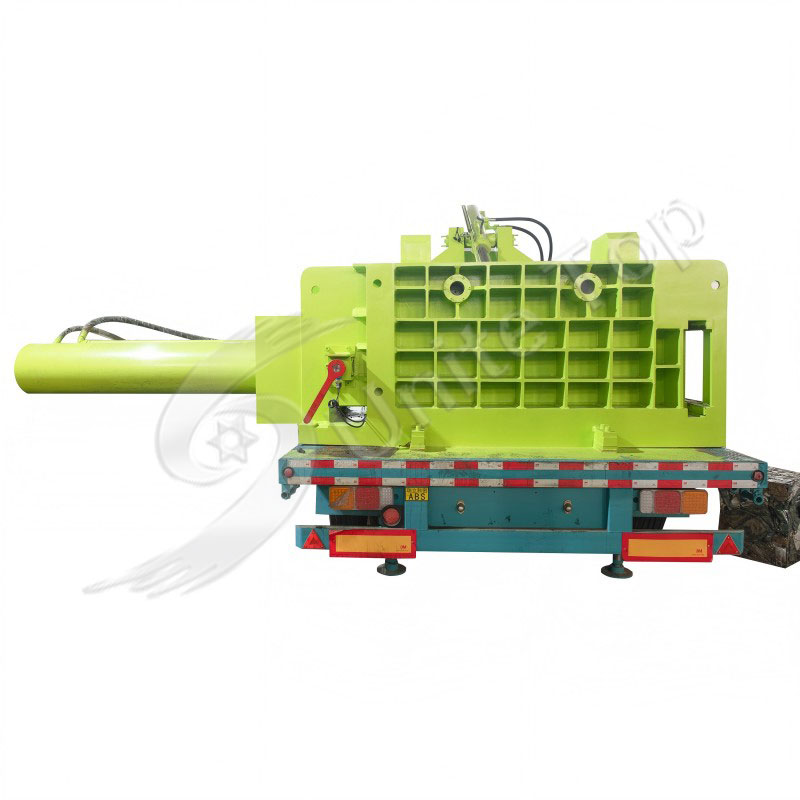
How Mobile Balers Contribute to Green Manufacturing
Reduced Transportation Emissions
Mobile balers reduce the number of trips required to transport materials by compressing metal trash on-site. Loose scrap takes up significantly more space, often requiring multiple hauls. Compact bales reduce the number of trips, saving fuel and lowering CO₂ emissions.
Efficient Recycling Processes
With mobile balers, scrap materials are prepared for recycling immediately after generation. This eliminates delays in processing, improves sorting efficiency, and prevents contamination, ensuring a higher-quality recycled product. Recycling that is simplified promotes closed-loop production, in which waste from one operation is used as raw material for another.
Support for Circular Economy
A mobile baler facilitates firms’ engagement in the circular economy, which aims to reduce waste by reusing, refurbishing, and recycling materials and products. By simplifying and localizing scrap management, mobile balers make it easier to reintegrate metals into the production cycle.
Energy Savings
Producing metals from raw ores consumes enormous energy. When aluminum is recycled instead of refined from bauxite, for instance, up to 95% less energy is used. Mobile balers promote metal recycling at the source, contributing to substantial energy savings across industries.
Industry Applications
The versatility of mobile scrap metal balers has made them valuable across a range of sectors:
Manufacturing Facilities
Factories producing sheet metal parts, automotive components, or metal hardware benefit from on-site baling. These units allow for regular, efficient scrap handling without disrupting production lines.
Construction and Demolition Sites
Metal waste is a common byproduct of construction and destruction. A mobile baler at the site helps reduce clutter, improves worker safety, and makes cleanup more efficient by turning loose scrap into transport-ready bales.
Automotive Recycling
Junkyards and vehicle dismantling sites use mobile balers to compress car bodies, hoods, and other metal parts. This not only optimizes storage but also increases resale value when selling the scrap to recyclers.
Municipal Recycling Programs
Some municipalities deploy mobile balers as part of public recycling events or mobile recycling stations, bringing industrial-grade recycling to neighborhoods and underserved areas.
Shipyards and Offshore Platforms
In industries where space and logistics are limited, such as ship dismantling or offshore oil rigs, mobile balers offer a practical solution for managing scrap without the need for costly transport.
Case Study: Transforming Scrap Management at a Regional Factory
A mid-sized machinery manufacturing plant in Eastern Europe recently implemented a mobile scrap metal baler to address growing scrap volumes. Previously, the factory stored uncompressed scrap outdoors until enough accumulated for haulage. This created fire risks, safety hazards, and inefficiencies in scrap revenue.
By integrating a mobile baler into daily operations, the plant reduced scrap volume by over 80%, enabling weekly collections instead of daily ones. The compacted scrap fetched higher prices due to its uniform density and cleanliness. The factory also reported a 20% reduction in waste handling costs and received a sustainability award from a regional industry group.
Environmental and Economic Benefits
The mobile baler’s environmental benefits align with financial savings, making it a win-win solution for businesses:
- Improved scrap resale value due to high-density bales.
- Reduced haulage and fuel costs, thanks to fewer transport trips.
- Enhanced workplace safety with cleaner, more organized scrap handling areas.
- Regulatory compliance with waste management and emissions standards.
- Positive brand image as customers and stakeholders value sustainable operations.
Addressing Common Challenges
While the mobile scrap metal baler is a powerful tool for sustainability, it’s important to consider some challenges:
Initial Investment
These machines come with a significant upfront cost. However, many suppliers offer lease-to-own programs or rental options, making them accessible to smaller operations.
Training and Maintenance
Operators must be trained to handle the equipment safely. Scheduled maintenance is essential to ensure long-term reliability and avoid operational downtime.
Power Supply Considerations
Depending on the model, some balers may require external power sources. Hybrid and electric models help solve this issue in urban or indoor environments.
Despite these considerations, the long-term ROI in cost savings and environmental impact often justifies the investment.
Government Policies and Incentives
Mobile scrap balers are one example of a sustainable technology that many governments are promoting through:
- Green equipment tax credits or deductions.
- Low-interest loans for waste reduction and recycling solutions.
- Subsidies or grants targeting SMEs and eco-friendly innovations.
These policies are further accelerating the adoption of mobile balers across developing and developed economies alike.
Future Trends and Innovation
The future of mobile scrap metal balers is moving toward greater automation, digitization, and integration with smart systems. Upcoming trends include:
- AI-powered sorting and baling optimization
- IoT-enabled performance tracking and diagnostics
- Remote operations via mobile apps
- Lightweight, electric-only models for urban use
- Integration with robotic scrap feeding systems
These advancements will expand the role of mobile balers in modern manufacturing ecosystems and smart recycling infrastructures.
Conclusion
The mobile scrap metal baler is more than just a compacting machine—it’s a strategic tool in the global push for sustainability. By empowering businesses to handle scrap efficiently and responsibly, it accelerates the transition to cleaner, greener manufacturing.

